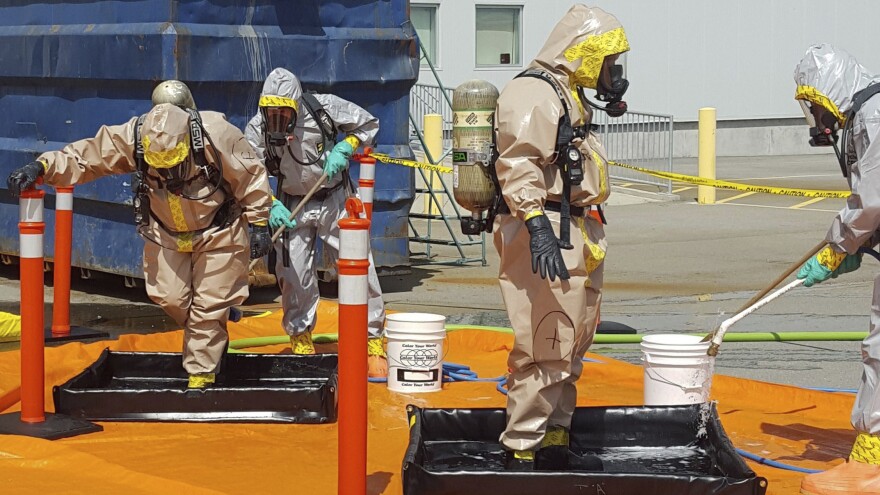The drug is so strong and deadly, it's been researched as a chemical weapon of warfare; police officers are warned to handle it with extreme care. The opioid carfentanil is 10,000 times more potent than morphine — but until now, it hasn't been a controlled substance in China, where producers have been exporting it abroad.
U.S. officials are welcoming the news that China will now list carfentanil as a controlled substance, putting it in the same category as fentanyl — the less powerful opioid of which carfentanil is a variant. Fentanyl was blamed for the death of Prince last year.
Potent and addictive, fentanyl and carfentanil have played deadly roles in the opioid epidemic that has swept the U.S. and killed thousands of Americans in recent years, as the drugs have been mixed into heroin or used to create an alternative to that less powerful drug. From 2010 to 2014, officials say, heroin overdoses more than tripled in the U.S. — and part of the problem, they add, is that drug users may not realize how strong the adulterated drugs are.
From Shanghai, NPR's Rob Schmitz reports for our Newscast unit:
"Zoos keep carfentanil as an elephant tranquilizer, but drug dealers cut it up and add it to heroin and other drugs to boost profit margins. For years, Chinese companies offered to export carfentanil around the world for less than $2,000 a pound. Drug dealers in the United States were eager customers.
"The U.S. Drug Enforcement Administration says China's regulation of the substance is a potential game changer that is likely to curb a surge of overdoses and deaths among users in the US. China will also regulate two other opioids that are related to carfentanil.
"The DEA confirmed more than 400 seizures of carfentanil across eight U.S. states from July through October. The drug will be added to China's list of controlled substances on March 1."
In its most recent drug threat assessment, the DEA said that of some 129 people who died of drug poisoning every day in 2014, 61 percent of the cases were tied to pharmaceutical opioids or heroin.
The new controls over carfentanil comes months after a senior official at China's Ministry of Public Security's Narcotics Control Bureau said there was no proof that carfentanil from China was to blame for a spate of deaths in the U.S. and Europe.
"It is mere speculation, as there is no solid evidence to prove the source, the exact number of victims, or the severity of the problem in these countries," the official told China Daily.
As the AP reported last October, U.S. agents had been seeking a change in the drug's status in China — and officials had looked to use the Chemical Weapons Convention to help.
In its advisory about the drug, the DEA states, "carfentanil is approximately 100 times more potent than fentanyl, which can be lethal at the 2-milligram range."
The DEA says the precise lethal dose of carfentanil for a human "is unknown" — perhaps because, as the National Library of Medicine states, the drug "is intended for large-animal use only as its extreme potency makes it inappropriate for use in humans."
Illustrating that point, the DEA displayed an image of a tiny 2-milligram pile of powder next to a penny. In that image, the powder was a little bigger than Abraham Lincoln's ear.
Copyright 2021 NPR. To see more, visit https://www.npr.org. 9(MDA5NTM4MTIyMDE0MTg3NDc2MTVlZjdmNQ001))






